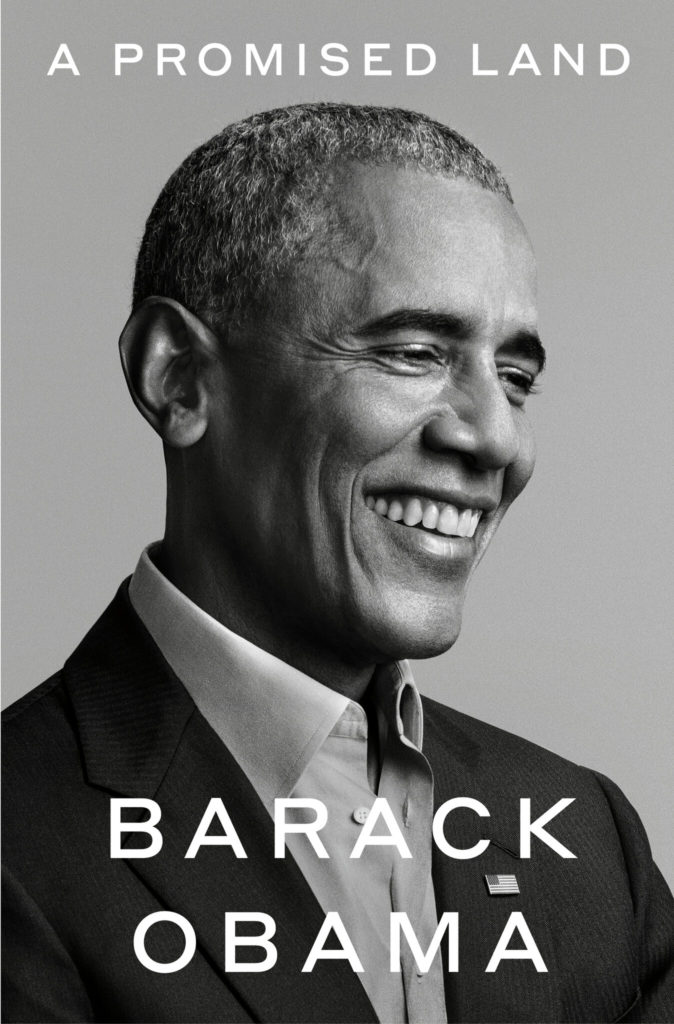December 25 2020
 President Obama’s memoirs are out and he says very little about Iran—but what he does say isn’t very kind to the Islamic Republic, which he calls “a grade A headache for my administration.”
President Obama’s memoirs are out and he says very little about Iran—but what he does say isn’t very kind to the Islamic Republic, which he calls “a grade A headache for my administration.”
Essentially he portrays the Islamic Republic as a major pain in the neck but not capable of being a serious threat to the United States beyond the nuclear issue.
This is but the first volume of a two-volume autobiography and it ends barely half way through his first term, so the whole story of the Joint Comprehensive Plan of Action remains to be told in volume two.
The first volume, however, includes his discussion of how he viewed the Islamic Republic and how he started out trying to deal with it.
He said he started out seeing three countries as particularly difficult to deal with—Russia, China and Iran. “Iran posed the least serious challenge to America’s long-term interests but won the prize for ‘Most Actively Hostile’,” Obama wrote at the start of his rendition of dealing with Iran.
He made clear that he thought Iran had some legitimate beefs with the United States. “Operation Ajax [the CIA plot to topple Prime Minister Moham-mad Mossadegh in 1953] set a pattern for US miscalculation in dealing with developing countries that lasted throughout the Cold War: mistaking nationalist aspirations for Communist plots; equating commercial interests with national security; subverting democratically elected governments and aligning ourselves with autocrats when we determined it was to our benefit,” he wrote.
He said Iran’s post-revolution policies toward the West set up trouble for the West—and also Iran. “Khomeini’s rendering of the world as a Manichean clash between the forces of Allah and those of ‘the Great Satan’ (America) seeped like a toxin into the minds not just of future jihadists but also of those in the West already inclined to view Muslims as objects of suspicion and fear.”
He emphasized that his view of Islam was based on his years attending elementary school in Indonesia where “Islam has occupied roughly the same place in that nation’s culture as Christianity did in the average American city or town, relevant but not dominant.”
Obama didn’t seem to care that much that Iran had a staunchly Islamic government—though he acknowledged that “under any circumstances,… Iran would have been a grade A headache for my administration. But it was the country’s accelerating nuclear program that threatened to turn a bad situation into a full-blown crisis…. If war became necessary, nearly everything else I was trying to achieve would likely be upended.”
One of his first foreign policy initiatives was to send a letter proposing talks to Supreme Leader Ali Khamenehi just weeks after entering the White House. Many criticized him for being naive in approaching Khamenehi. Obama writes that Khamenehi responded to that first letter by saying “Iran had no interest in direct talks,” something it is still saying.
Obama’s chief of staff, Rahm Emmanuel, read a translation of the letter and commented, “Guess he’s not unclenching his fist anytime soon.”
Obama said he replied, “Only enough to give me the middle finger.”
Obama then explains, “The truth was, none of us in the White House had expected a positive response. I’d sent the letter anyway because I wanted to establish that the impediment to diplomacy was not America’s intransigence—it was Iran’s.” Much of the world was saying at that time that all would be well if Washington wasn’t so intransigent regarding Iran. Few say that anymore.
That letter kicked off an Obama campaign to paint the Islamic Republic as a troublemaker and to remove the stain of thuggishness that the Bush Administration had left painted all over the United States.
Obama also addresses the 2009 post-election protests across Iran. Republican critics damned him constantly for failing to endorse the protesters. Obama criticized the Islamic Republic for harshly suppressing the protests. But he never endorsed the cause of the protesters. Obama said he considered doing just that. “But when I gathered my national security team, our Iran experts advised against such a move. According to them, any statement from me would likely backfire.”
All he issued, he writes, “were bland, bureaucratic statements,” not what he felt and believed.
“I was learning yet another difficult lesson about the presidency: that my heart was now chained to strategic considerations and tactical analysis, my convictions subject to counterintuitive arguments, that in the most powerful office on earth, I had less freedom to say what I meant and act on what I felt than I’d had as a senator—or as an ordinary citizen.”
The focus of the administration then moved to encouraging “the international community to apply tough, multilateral sanctions that might force Iran to the negotiating table”—global sanctions that President George W. Bush could never get the world to agree on because the United States had appeared to be the problem rather than Iran.
The big shift finally came about when Iran was exposed building a huge uranium enrichment plant underground at Fordo on a military reservation.
“Our presentation seemed to rattle the Russians,” who have always been firmly opposed to any other countries getting nuclear weapons, very much out of self-interest. Russian President Dmitry Medvedev told Obama Russia had always opposed sanctions, but then said, “In some cases, sanctions are inevitable.” That was a sea change.
But Obama didn’t want to be the one revealing the centrifuge building to the world, fearing comparisons to the 2001 presentation to the UN by Secretary of State Colin Powell about an Iraqi nuclear program that turned out to be erroneous. So, Obama writes, the story was leaked instead to The New York Times.
Obama said that his good working relationship with Medvedev was crucial to mobilizing the UN Security Council to imposing very harsh sanctions on the Islamic Republic. “He and I carved out time to work through the logjams in the negotiations as we got closer to the Security Council vote,” Obama writes. The two often talked on the phone as well as in person. “Medvedev ended up going further” and making more compromises than Obama’s staff thought possible, given Moscow’s long-standing ties to Iran.”
Volume Two of the memoirs is expected to have much more to say about relations with Iran. But Volume One shows Obama more directly involved in putting UN sanctions together than previously known.























